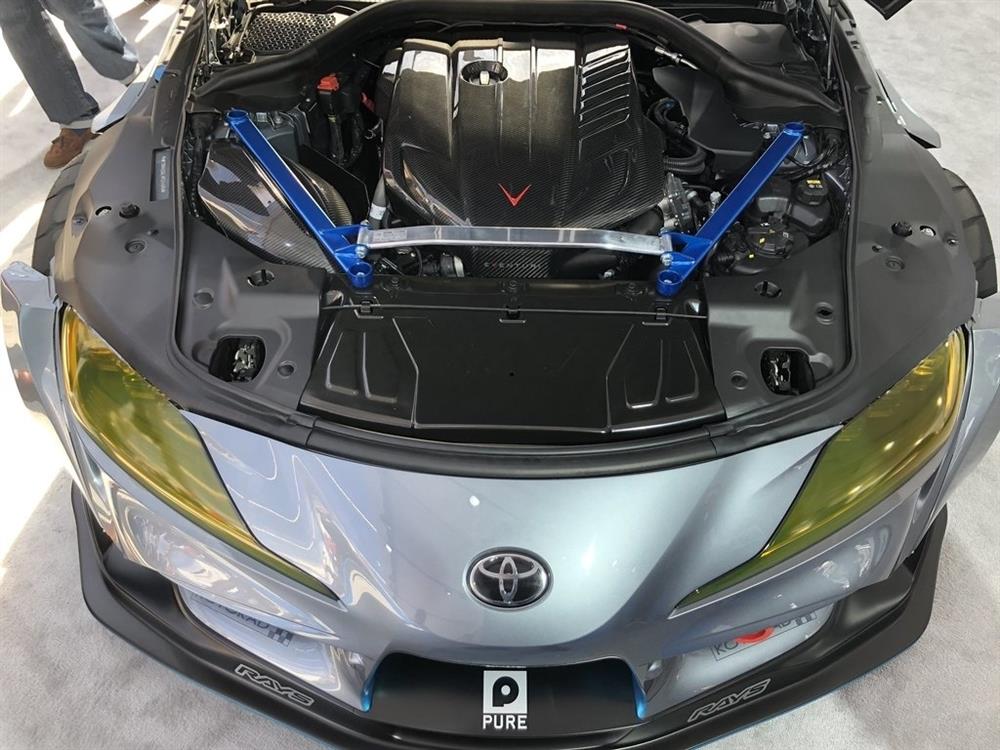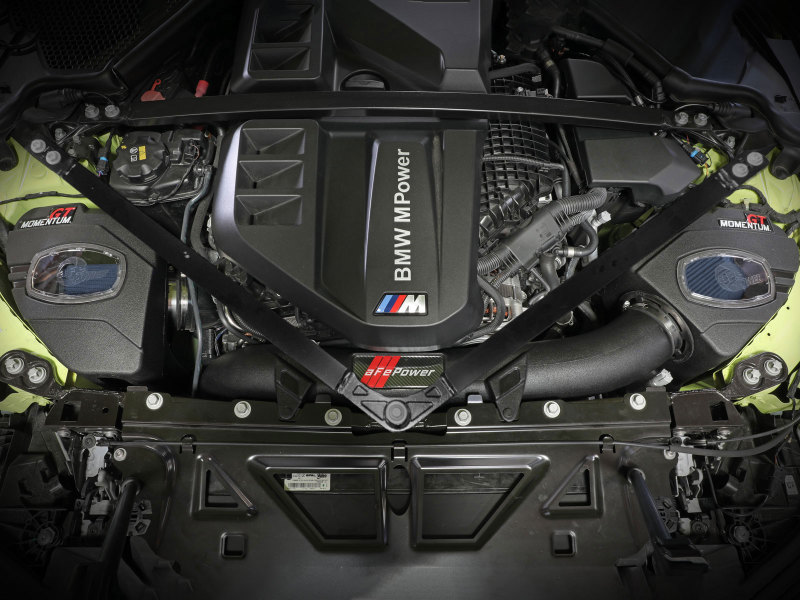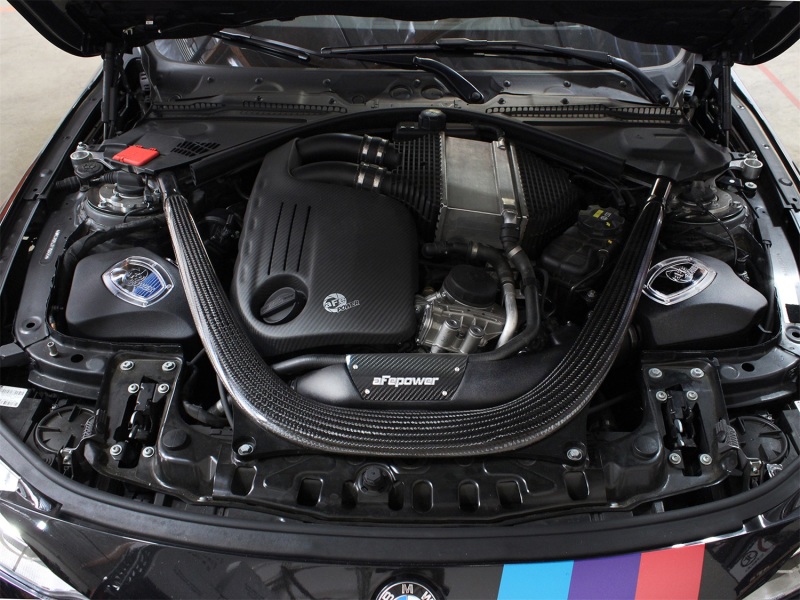We're back with another quick blog to discuss the engines behind the most popular BMWs on the market. From twin-scrolls to twin-turbos, gas guzzlers to fuel sippers, there's an engine in BMWs range for everyone's taste. Each prides itself on unique characteristics and driving behaviors that make each of them distinct, while all delivering asphalt-burning performance in a brutally efficient way that only the Germans can deliver.
You could write an entire novel on the expansive array of engines BMW has on offer, but for this post, we're going to focus solely on the powerplants of our bread-and-butter listings.
BMW Engines:
B58

The B58 needs no introduction. Tuners said it best. It's the new 2JZ. Twin-scroll single turbo, closed-deck for added strength, and a whole economy centered around its modification with near-infinite parts at its disposal. What's not to love? Arguably made famous by the Toyota GR Supra, the B58 was actually introduced in 2015 for the post-LCI BMW 340i and 440i, later trickling through the rest of BMW's lineup and phasing out the venerable N55. Versus the motor it replaced, the B58 rocked higher boost pressures, increased compression, and a heat encapsulation system for start-up emissions as well as improved engine and fluid longevity. For its renowned reliability and strong base parts, the B58 has become a tuner's delight, able to handle big boost and push big power with little reworking of the internals.
Specs:
- Power: 320 hp (early 40i models), 335 hp (A90 Supra), 382 hp (A91 Supra)
- Torque: 368 lb-ft.
- Displacement: 3.0 liters
- Cylinder Arrangement: inline-six
- Boost Pressure: 12 psi
- Turbo Configuration: single twin-scroll turbo
- Block Material: closed-deck aluminum
- Crank Material: forged steel
- Compression: 11.0:1 (A90 Supra), 10.2:1 (A91 Supra)
- Redline: 7,000 RPM
Featured in:
- Toyota GR Supra
- BMW G29 Z4 M40i
- BMW G20 M340i/G22 M440i
- BMW G42 M240i
- BMW G30 540i
- BMW F30 340i/F32 440i
- BMW F22 M240i
- and more...
S58

Building off the now-legendary B58, the S58 has built a reputation for being an easier-going, easier-to-manage engine without sacrificing any performance. Like the S55, compression is down versus its base engine, but boost is drastically up, especially in the Competition and CSL models that don't make concessions for the manual transmission. The crank is forged steel, and the pistons are forged aluminum by Mahle. Redline is lower but still lofty for a forced-induction powerplant, likely due to BMW's decision to increase bore but reduce stroke going from B58 to S58. Power builds in a more predictable manner, with a cinch more turbo lag, but horsepower is way up across all variants while retaining a silky-smooth and playful demeanor. As a plus, these motors arguably sound a tad nicer out of the box, too. No more complaints about the S55's "woodchipper gargling chainsaw" noises, as this finally sounds like a proper BMW turbo straight-six.
Specs:
- Power: 453 hp (M2), 473 hp (base M3/M4), 503 hp (Competition), 543 hp (CS, CSL)
- Torque: 406 lb-ft. (M2, base M3/M4), 479 lb-ft. (Competition, CS, CSL)
- Displacement: 3.0 liters
- Cylinder Arrangement: inline-six
- Boost Pressure: 18.9 psi (base M3/M4), 24.7 psi (Competition)
- Turbo Configuration: twin single-scroll turbos
- Block Material: closed-deck aluminum
- Crank Material: forged heat-treated steel
- Compression: 9.3:1
- Redline: 7,200 RPM
Featured in:
- BMW G80 M3/G82 M4
- BMW G87 M2
- BMW X3 M/ X4 M
S55

Building upon the well-received N55, the S55 upped the ante for the F80 M3 and its related siblings. Versus the N55 on which it's based, the S55 rocks a closed-deck block and lowered compression ratio for added strength in the face of increased boost, courtesy of a true twin-turbo setup. The S55 also utilized a lighter crankshaft and strengthened bearings, connecting rods, and pistons. This particular motor's claim to fame was its lairy, nerve-racking power delivery, hitting like a sledgehammer with all 406 pound-feet at merely 1,850 rpm before ripping all the way to its stratospheric 7,600-rpm redline. It was fast and visciously so, earning both praise and criticism for its tire-shredding demeanor and helping the F80 build a large cult following. As with the trend of improved BMW reliability, the S55 proved to be a very stout and unproblematic motor, forgoing the rod-bearing and throttle body actuator woes of the prior S65 V8 and S54 non-turbo straight-six and the only concerns being carbon build-up from the direct injection system.
Specs:
- Power: 405 hp (M2 Competition), 425 hp (base M3/M4), 444 hp (Competition), 493 hp (GTS)
- Torque: 406 lb-ft. (all M2, M3, M4), 443 lb-ft. (GTS)
- Displacement: 3.0 liters
- Cylinder Arrangement: inline-six
- Boost Pressure: 17.2 psi (base M3/M4), 21.6 psi (GTS)
- Turbo Configuration: twin single-scroll turbos
- Block Material: closed-deck aluminum
- Crank Material: forged steel
- Compression: 10.2:1
- Redline: 7,600 RPM
Featured in:

























































































































































































































































































